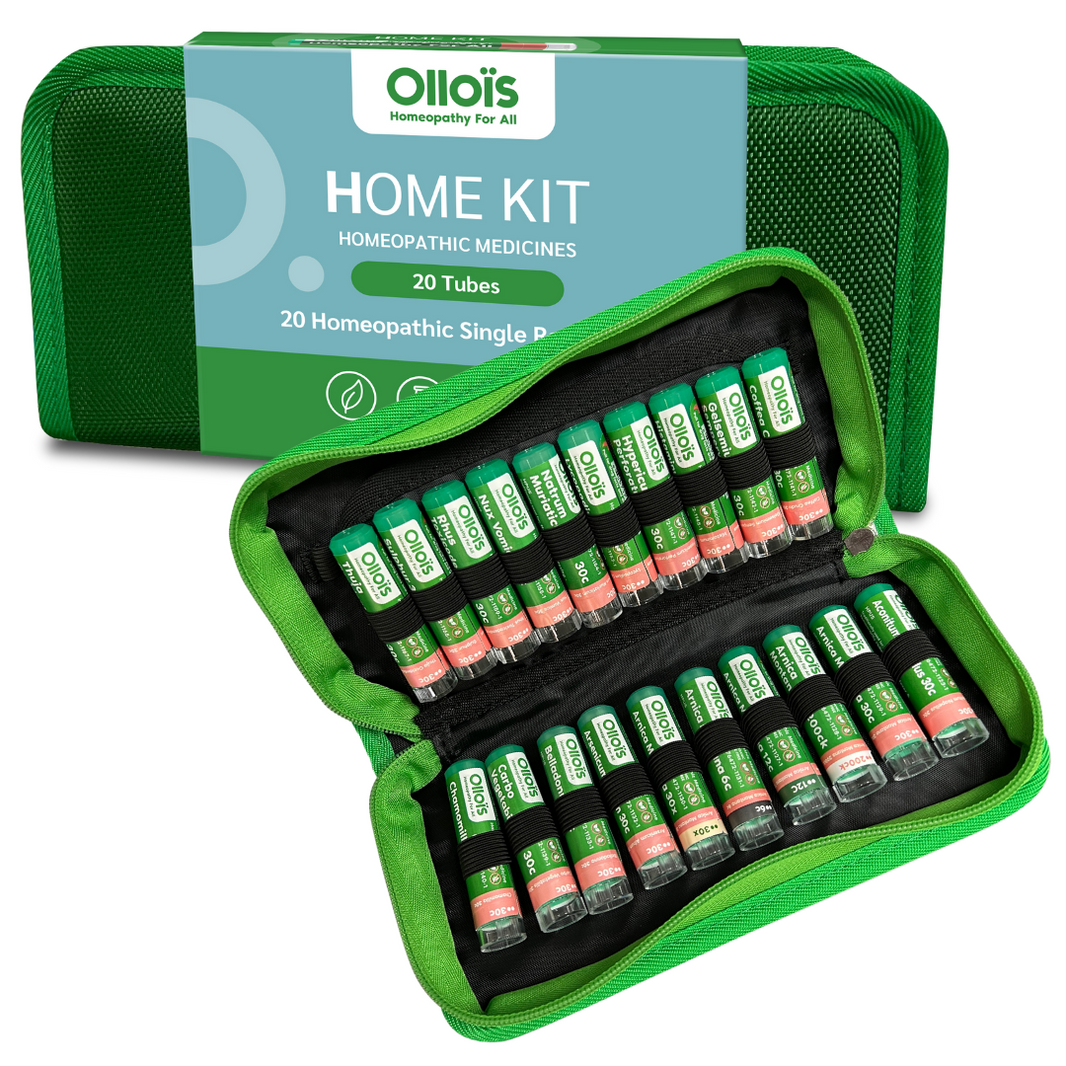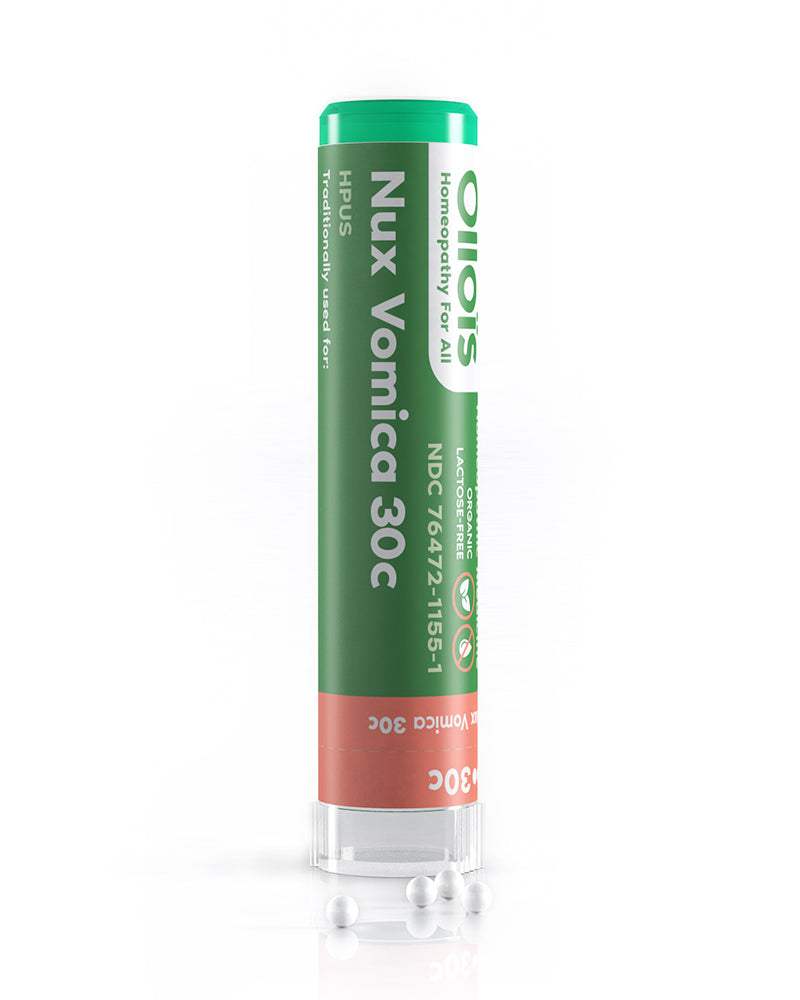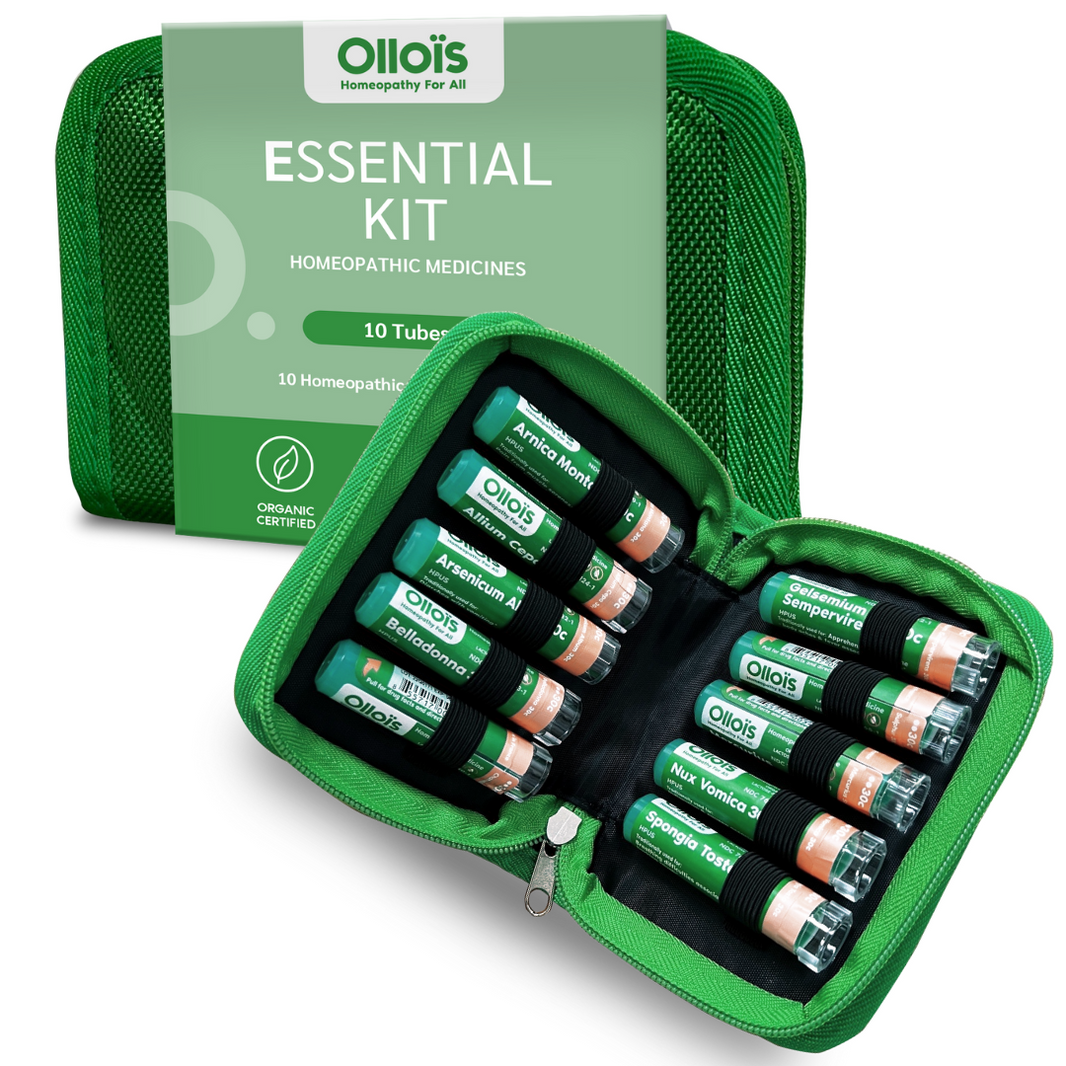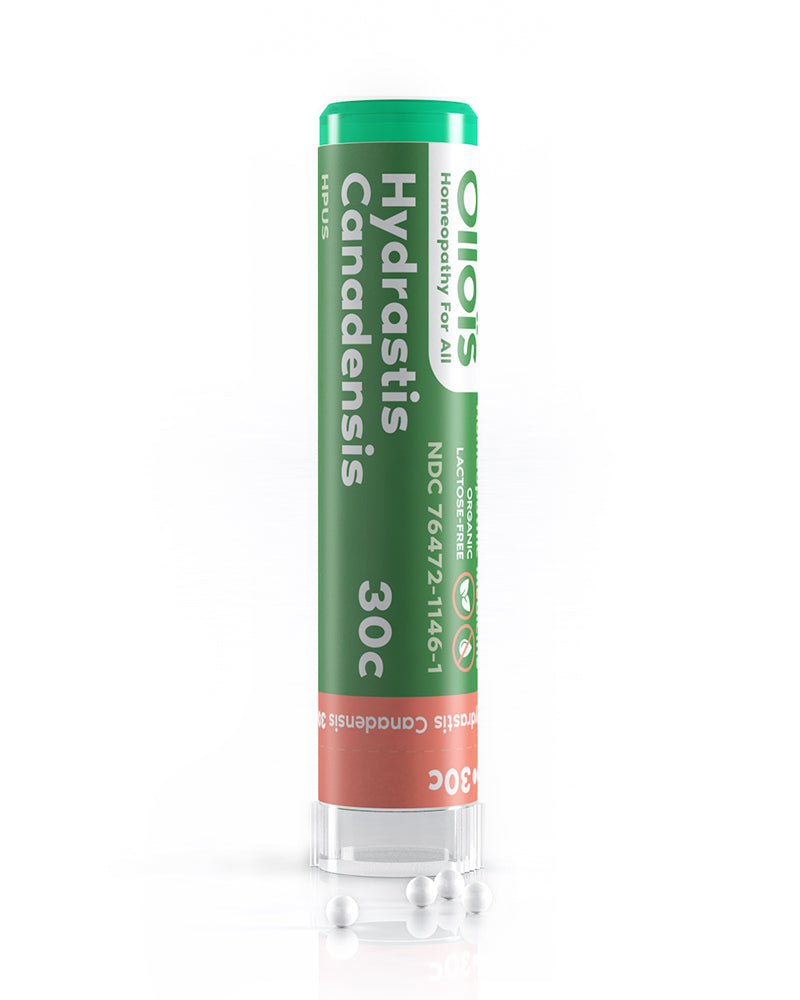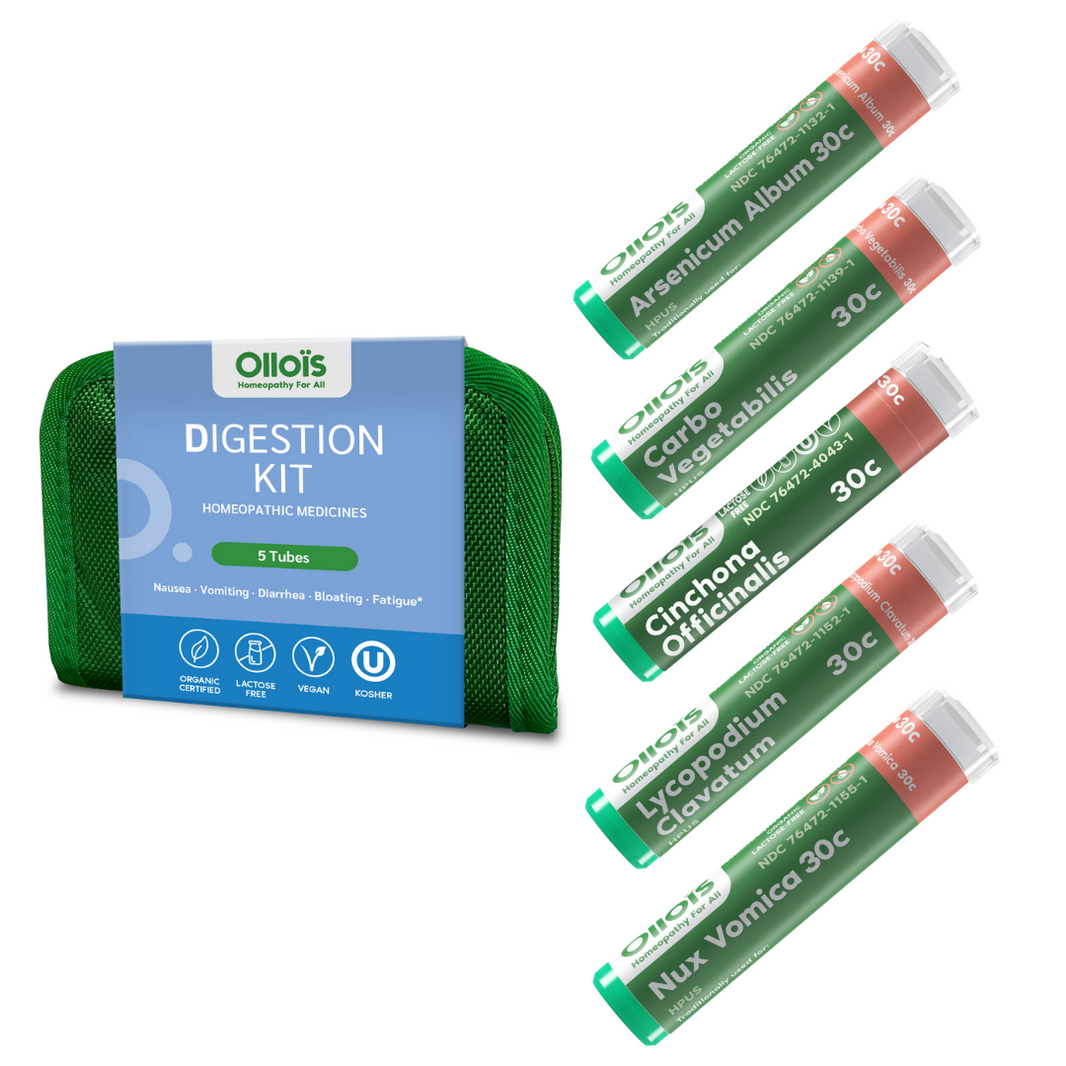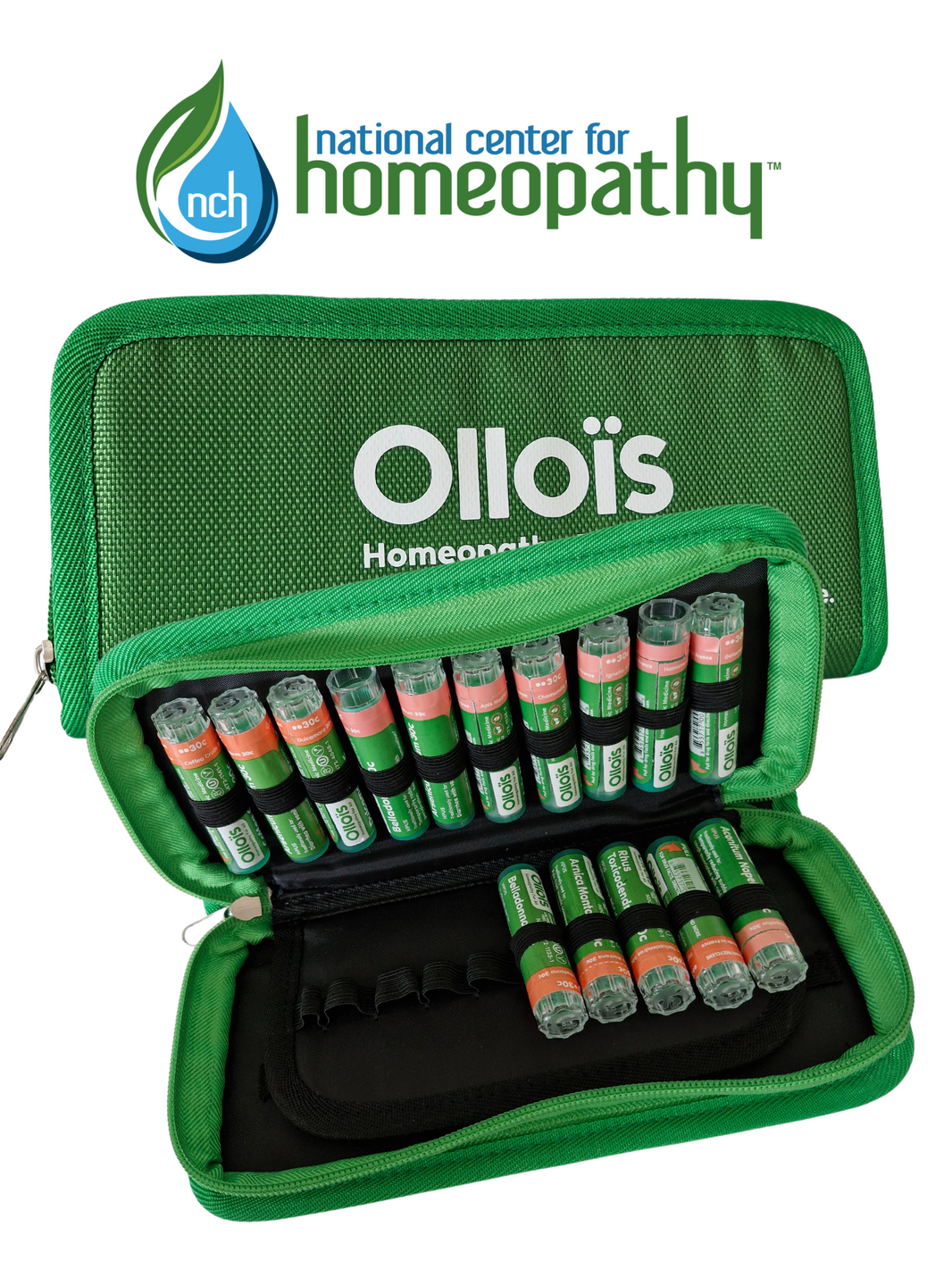Collection: Stomach Pain
Homeopathic Home Kit
Nux Vomica
Homeopathic Essential Kit
Hydrastis Canadensis
Homeopathic Digestion Kit
NCH First Aid Kit
Few things can bring your day to an abrupt halt like stomach pain. Since we’re always in some stage of the digestive process, any disruption to the system can leave us feeling nauseous or physically ill. There are a number of digestion issues that could be the source of some amount of stomach pain. Heartburn can occur soon after eating – as well as allergic reactions to food we’ve eaten. Food poisoning can be experienced many hours after ingestion and constipation or diarrhea can be factors that cause significant pain and discomfort at the waste-removal phase of the process.
Gas as a result of fibre-rich, sugary, and starchy foods, and the pain associated with excessive gas, stems from the large intestines and the bacteria that aid in digestion. The resulting fermentation creates the gas that’s expelled through flatulence. An excessive buildup can be quite uncomfortable.
Perhaps the most frequent source of a stomach pain complaint is indigestion. This is often caused by overindulgence. Occasions where lots of food is available, such as a holiday dinner, wedding, or party, are environments conducive to eating much more than your body requires – or, than your stomach can handle. The problem is that this often happens when there are plenty of distractions around – making it easier to ignore the signs and messages from your stomach that it’s had enough. Often, the following morning can be very uncomfortable as the overfilled feeling persists.
Turning your day around requires effective treatment. For those who are looking for a natural remedy, there is homeopathic medicine for stomach pain available from Olloïs. Both Hydrastis-Canadensis-30c and Nux-Vomica-30c are good organic choices that can provide you with the relief you need.
Learn more about the all-natural organic remedies available from Olloïs and see how they can have you feeling your best.
FAQ
What is Homeopathy?
Homeopathy is a medical practice based upon the boday's ability to heal itself, and the principle that "like cures like" or the Law of Similars: that is, if a natural substance causes a symptom in a healthy person, a very small amount of the same substance may help relieve symptoms of the illness. Homeopathic medicines enhance the body's normal healing and self-regulatory process.
How do I take homeopathic medicines?
Homeopathic medicated pellets contain only a little of an active ingredient for treatment of disease. These are known as highly diluted or "potentiated" substances. Homeopathic medicines should be placed under the tongue of adults and children or in the cheek of an infant, where they will dissolve. It is preferable to take homeopathic medicines apart from meals. The dosage is not related to the weight and age of the patient. In general, dissolve 5 pellets 3 times a day until symptoms are relieved or as directed by your health Care Professional.
Is there evidence that Homeopathy works?
There are literally hundreds of high quality, published basic sciences, pre-clinical and clinical studies showing that homeopathy works. These studies have been published in respected journals like Lancet, Pediatrics, Rheumatology, and Annals of Internal Medicine, among others.
A great source of high quality research in homeopathy at an
international level is the Homeopathic Research Institute in the U.K. headed by physicist, Dr Alexander Tournier. Click below to learn more about their studies and rigorous methods.
Is Homeopathy regulated?
The U.S. Congress passed a law in 1938 declaring that homeopathic remedies are to be regulated by the U.S. Food and Drug Administration (FDA) in the same manner as nonprescription, over the counter (OTC) drugs.
Is Homeopathy new?
The Law of Similars has been known since at least the time of Hippocrates (ca. 400 B.C.), but it was doctor and chemist Samuel Hahnemann who fully stated the ideas of homeopathy in the early 1800's in Germany. He discovered the truth of the Law of Similars by testing small doses of medicine on himself. Although there is wider acceptance of homeopathy in countries such as France, Germany, Mexico, Argentina, India and Great Britain, we have seen a greater interest in homeopathic medicine in the USA recently. In fact, the family doctor to England's Queen Elizabeth is a homeopathic physician.
What is the difference between the dilutions?
30C dilutions are traditionally used in Homeopathy to address general and chronic symptoms.
200CK dilutions are usually recommended by healthcare practitioners when there is an emotional component associated with physical symptoms.
Which base ingredient do you use for your pellets?
Our pellets are made from Organic Beet Sucrose exclusively grown in Europe. We then impregnate the pellets with the homeopathic dilution of the remedy.
How to open our tubes?
Are Olloïs remedies HAS/FSA eligible?
Yes, Olloïs homeopathic remedies are eligible.

 Respiratory
Respiratory
 Stress & Sleep
Stress & Sleep
